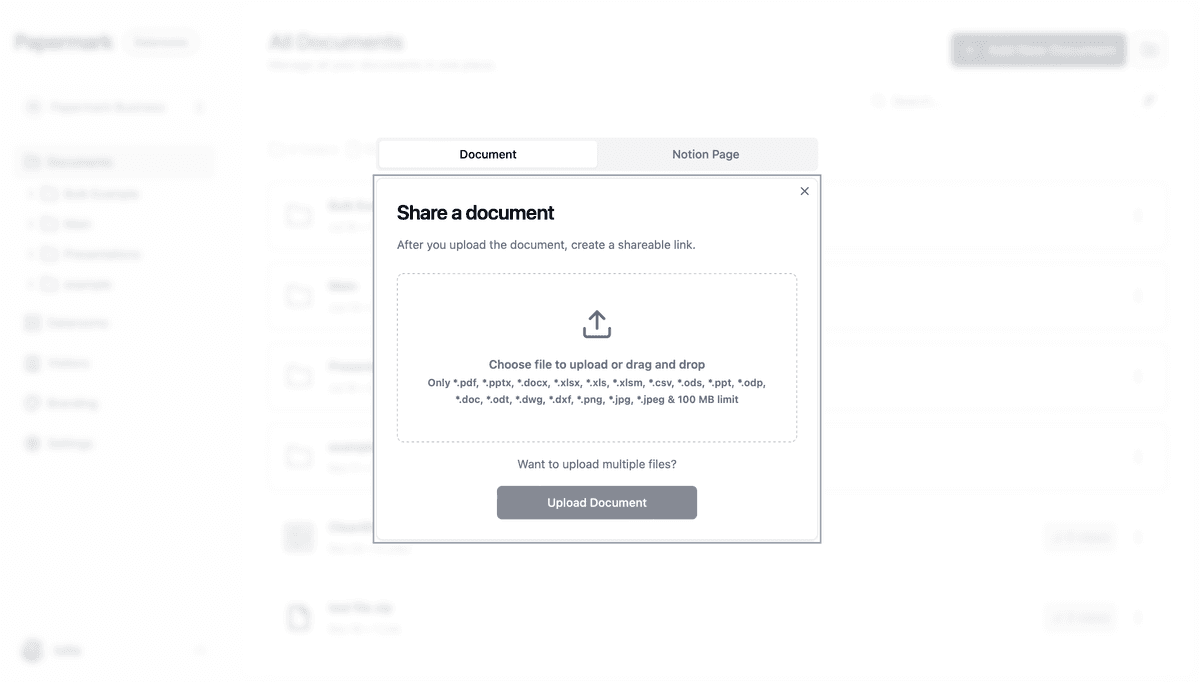How to protect pitch deck in 2025 (SECURE guide)

In today's competitive startup ecosystem, your pitch deck contains your most valuable business assets - from proprietary technology and financial projections to go-to-market strategies and competitive analyses. With over 3 million pitch decks shared with investors annually and startup intellectual property theft costing founders an estimated $3.2 billion in 2024, protecting your pitch deck isn't just prudent – it's essential for your startup's survival. Recent studies show that 58% of founders have experienced unauthorized sharing of their pitch materials, making pitch deck security a critical priority for entrepreneurs at every funding stage.
Why protect your pitch deck?
- Intellectual Property Protection: Safeguard your unique business model, technology, and market insights
- Investor Relationship Management: Control which investors see your materials and when
- Competitive Advantage: Prevent your strategies from reaching competitors
- Fundraising Intelligence: Track who engages with your deck and for how long
- Legal Compliance: Maintain confidentiality for regulated industries and sensitive data
According to a 2024 Founder Survey, startups with protected pitch decks are 340% more likely to maintain control of their confidential information during fundraising compared to those using unprotected files.
How to secure pitch decks with Papermark
1. Getting started with Papermark
- Visit papermark.io
- Create your free account
- Access your secure dashboard

2. Uploading and protecting your pitch deck
- Upload your pitch deck PDF
- Configure protection settings
- Set access permissions and expiration dates
- Generate secure sharing links
Looking to create an effective pitch deck? Check out our guide on creating a pitch deck with AI for helpful tips.
3. Advanced security features
- Real-time tracking: Monitor when investors view your deck and for how long
- Page-by-page analytics: See which slides receive the most attention
- Watermarking: Add dynamic viewer information to prevent screenshots
- Access controls: Set expiration dates and viewer restrictions
- Version management: Update your deck while maintaining the same link
Alternative methods for pitch deck protection
While using Papermark is the most effective way to secure your pitch deck, there are other methods available that can help you protect your sensitive information. Here are some alternative approaches to consider:
Basic PDF protection
- Convert your pitch deck to PDF
- Enable password protection in Adobe Acrobat
- Set permissions for printing/copying
- Share with caution
For more detailed guidance on sharing your protected pitch deck effectively, read our guide on how to share your pitch deck link.
NDA-first approach
- Create a standardized non-disclosure agreement
- Request signed NDAs before sharing your deck
- Maintain records of all signed agreements
- Follow up on any suspected breaches
Best practices for pitch deck security
1. Content management
- Include only necessary information
- Watermark all pages
- Create different versions for different audiences
- Document change history
2. Distribution control
- Track all shared copies
- Use expiring links
- Implement viewer authentication
- Request confirmation of deletion
3. Follow-up protocols
- Monitor unusual access patterns
- Check in with recipients
- Update shared decks promptly
- Revoke access when appropriate
For more comprehensive protection of your startup's confidential information, consider setting up a data room for your startup.
Key takeaways
- Pitch deck protection is critical for safeguarding your startup's IP
- Multiple protection methods should be combined for maximum security
- Regular updates to security practices are essential
- Analytics provide valuable fundraising intelligence
Conclusion
In the high-stakes world of startup fundraising, protecting your pitch deck isn't optional - it's a strategic necessity. Your pitch materials contain the blueprint of your business, and securing them properly ensures that you maintain control over your company's intellectual property while still effectively sharing your vision with potential investors. By implementing the security measures outlined in this guide, particularly through comprehensive tools like Papermark, you're taking essential steps toward protecting your startup's most valuable assets.
Want to know the best way to send your pitch deck to investors? Check out our guide on how to send pitch deck to investors for expert advice.